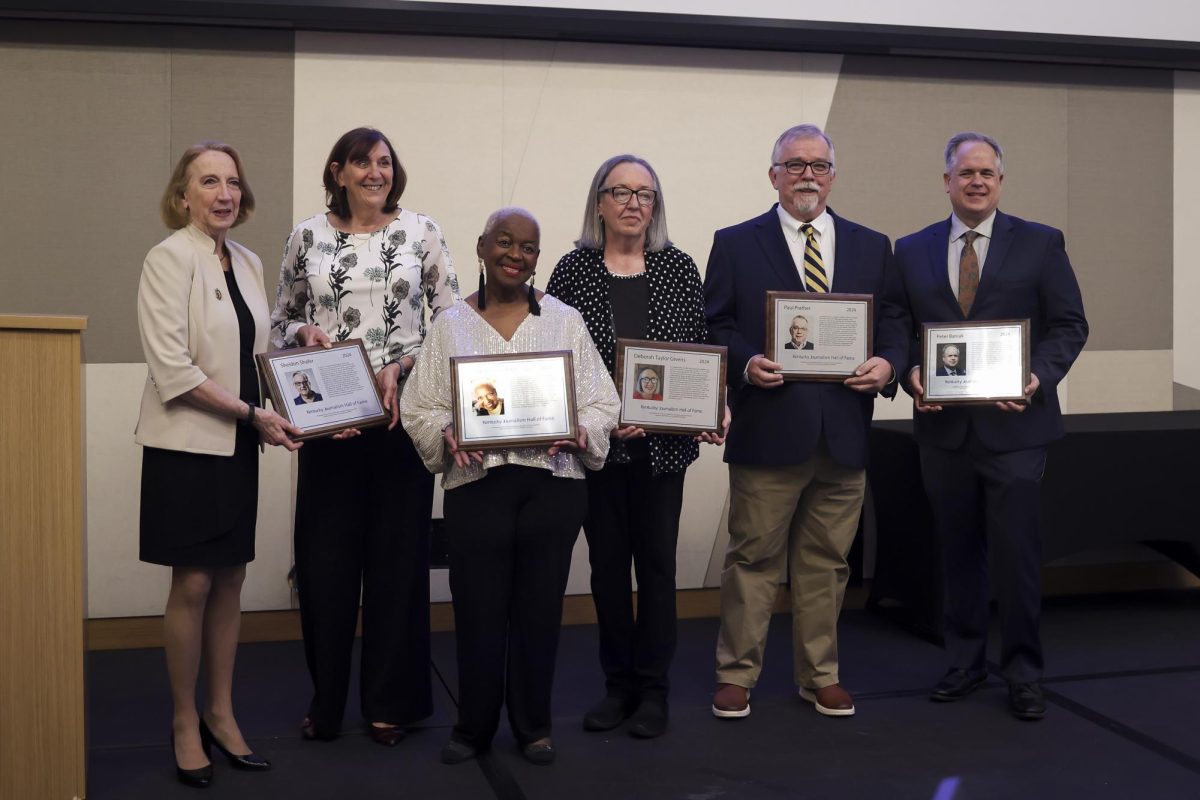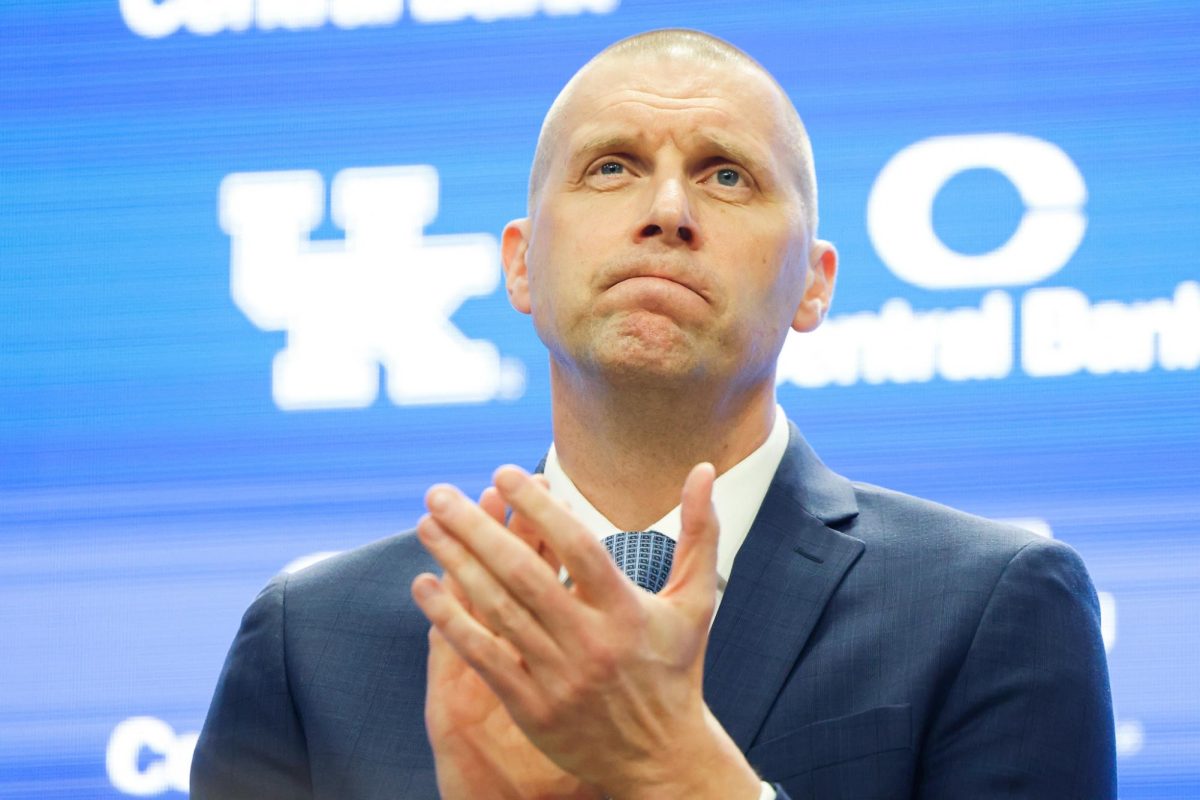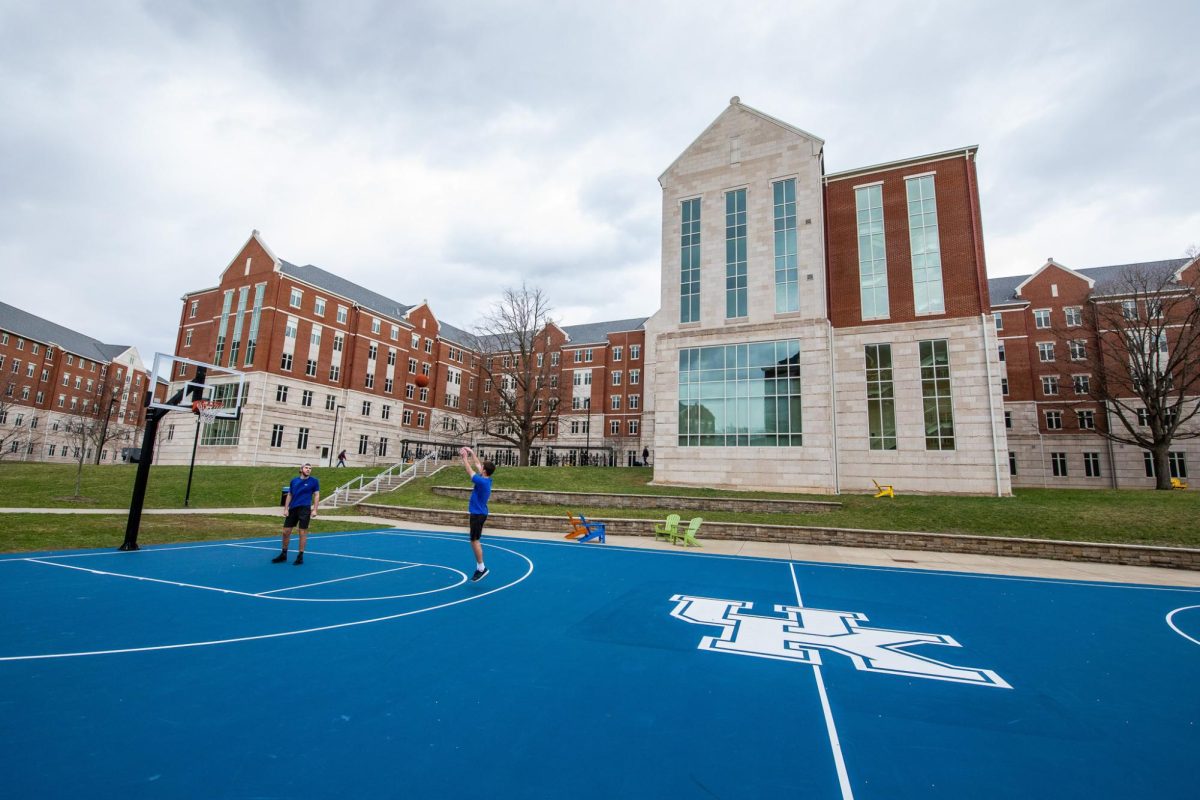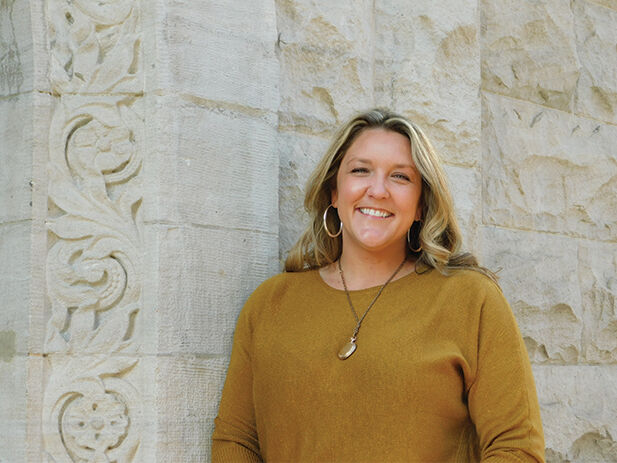Self-described ‘champion of non-profits’, Jessica Mohler, campaigns for Urban City Council
Jessica Mohler, one of the candidates for the District 3 seat for Urban City Council, poses for a portrait outside of the Old Fayetteville County Court House in Lexington, Kentucky, on Oct, 17, 2020. Photo by Emily Girard | Staff
October 22, 2020
Jessica Mohler’s commitment to run for office started long before she ever thought about signing the official papers. It started as a young girl, watching her mother’s civic engagement and mission-driven work.
Mohler said seeing her mother’s activism inspired her own. As a UK student, she advocated for the protection of the Robinson forest and supported House Bill 70, which would allow former felons to vote. After graduation, she continued her civic involvement as a member of grassroots organization Kentuckians for the Commonwealth, Planned Parenthood volunteer and frequent protester.
“I’ve marched more times on the streets of Lexington and Washington on behalf of Kentuckians than I can count,” Mohler said. “I feel like running for office is just one more way to bring power to all the people.”
Mohler is running against Hannah LeGris in the non-partisan race for District 3’s Urban City Council seat. If elected, Mohler would collaborate with the other 11 Lexington-Fayette Urban County Government (LFUCG) councilmembers to set policy and budgets in four areas: general government and social services; budget, finance and economic development; environmental quality and public works; and planning and public safety.
The University of Kentucky sits within District 3 and was previously represented by Jake Gibbs, who died unexpectedly in March. The vacancy is currently filled by Mark Swanson, an associate professor at UK.
According to Kentuckians for the Commonwealth, both Mohler and her opponent are nonpartisan.
Mohler’s campaign focus is smart and equitable growth. Spending the past 20 years in District 3, she said she has seen the city grow firsthand from multiple perspectives.
“I’ve lived as the student in the dorm. I’ve been the rowdy party house. I’ve been the young professional who just wanted to sleep with the rowdy party house next door. I’ve been the renter in a historic neighborhood, and I’ve been a homeowner for the last 11 years,” Mohler said.
But this exponential growth has led to increased disparity, she added. As a councilwoman, Mohler wants Lexington to be a city growing for everybody, not just a select few.
Mohler’s ideas to promote smart and equitable growth include fully funding Lexington’s Affordable Housing Fund, advancing city policies that provide direct aid to struggling renters and homeowners, increasing inclusionary zoning and expanding Lexington Community Land Trust.
“We know when a city is only moving a certain socioeconomic bracket forward or a certain group of people that it fails,” she said. “The most sustainable city is one that has a wealth of diversity and inclusivity and so I just want to make sure Lexington doesn’t lose sight of that.”
A self-described “champion for non-profits,” Mohler is also determined to keep the city’s eyes on continued funding for the Extended Social Resource (ESR) program, which provides annual grants to a group of non-profit agencies that deal with social issues like community wellness and food insecurity.
As the Carnegie Center for Literacy’s director of marketing and communications for the past 11 years, Mohler said she understands firsthand that nonprofits are the “experts on the ground” who hold the trust of the city’s most vulnerable communities. The Carnegie Center is a non-profit community center focused on cultivating education and arts through tutoring programs, writing and language classes and other learning initiatives. Working there gave Mohler some perspective on what she thinks the city government could be doing better.
“The gaps in social services and government that I see that our kids come there with are so glaring, no matter how committed their parents are, no matter how awesome our programming is,” Mohler said.
Her previous job and life experience have also added fuel to Mohler’s slowly growing political fire throughout the past two decades.
In 2003, Mohler moved to Washington, D.C as a college junior to work for the Embassy of Croatia as a diplomatic scholar, where she witnessed how diplomatic relations and diplomacy operate on an international scale. While originally, her life goal was to work for the Foreign Service, her mother’s cancer battle convinced her to move back to Kentucky to be closer. Her resulting experiences with the healthcare system added one of the first pieces of the puzzle.
“(My mom) worked until the day she died, and yet she still died with half a million dollars of medical debt,” Mohler said. “Fighting the sickness and her death is just this constant, persistent reminder to me that the government can and must do better.”
Back in Lexington, Mohler landed a job at the Horse Park managing and editing for the American Saddlebred Horse Association until she was laid off during the recession. She said she gained a greater understanding of how the city and state’s economy is affected by the agriculture and horse industry in her time there.
Afterwards, she assisted Kentucky Rep. Kelly Flood as his legislative aide. In this position, Mohler said she observed how Lexington rebounded from the recession better than most cities due to the educated and resilient workforce of the university-laden town.
According to KFTC, Mohler said the pandemic has exacerbated many of the problems already seen in Lexington such as racial inequalities and economic insecurity, particularly growth that benefits some at the expense of others.
As a councilwoman, Mohler said she would be a champion for nonprofits, since she knows that they are “the experts on the ground.” She would take her experience as part of the team who increased the Carnegie Center’s budget from $320,000 to $1.2 million and apply the same skills to get through government red tape.



























































































































































